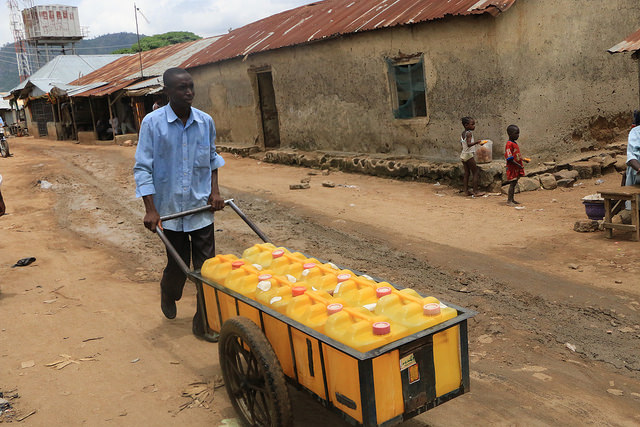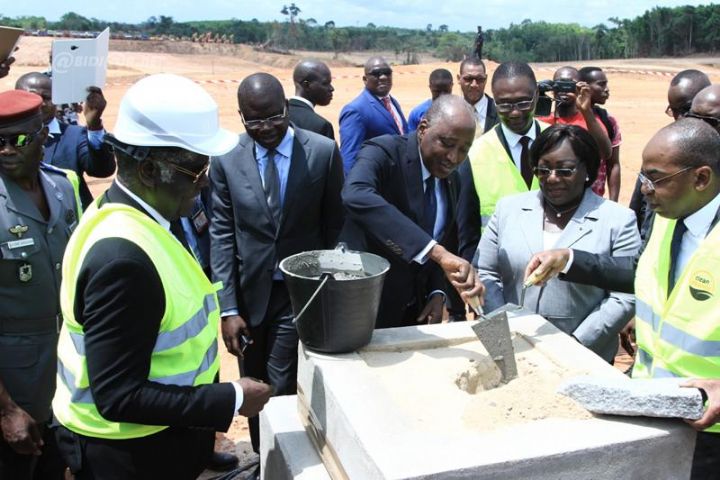
PAMACC News
Between February and March 2017, three students of Queens College Lagos; Vivian Osuinyi, Bithia Itula and Praise Sodipo, died from consuming water from a contaminated water tank in the school.
The story made headlines as a result of the magnitude of the issue and the effect of negligence on water pollution.
These issues were further compounded with reports of persons dying and getting illnesses from consuming water from unsafe sources.
There have been reports of deaths from cholera cases and from other water-borne diseases in parts of the country.
Although Nigeria has made considerable progress in the Water, Sanitation and Hygiene (WASH) sector, access to high-quality, reliable, and sustainable services remains low.
According to the 2017 WASH Poverty Diagnostic by the World Bank, Nigeria needs to invest three times its current investment to improve the decaying WASH sector and also to meet the Sustainable Development Goal six on water and sanitation by 2030.
The report offers an overview of poverty in Nigeria, considers the relationship between poverty and WASH, explores demographic patterns influencing access to WASH, and analyzes the relationship between WASH and child health outcomes.
Experts say the 2018 World Water Day with the theme, ‘Nature for Water’ is an opportunity to explore nature-based solutions to the water challenges in the 21st century.
According to the UN Water Website, damaged ecosystems affect the quantity and quality of water available for human consumption, with 2.1 billion people globally living without safe drinking water at home; affecting their health, education and livelihoods.
The SDG six commits the world to ensuring that everyone has access to safe water by 2030, and includes targets on protecting the natural environment and reducing pollution.
In Nigeria for instance, stakeholders have, on many occasions, called for adequate funding of policies on water resources to achieve greater socio-economic developments.
Mr Hassan Bdliya, Chairman, Global Water Partnership in Nigeria, said apart from funding, Nigeria needed to understand that water was a resource that could finish if not properly used in line with the principles of Integrated Water Resources Management (IWRM).
He said the IWRM emphasised the need to use water, putting in consideration sustainability, equity and reduce conflict that might come from poor use of water resources..
Bdliya said stakeholders were fond of developing water resources without following guidelines or principles and they somewhat ended up creating problems.
Corroborating this view, Mr Michael Ale, President, Association of Waterwell Drilling Rig Owners and Practitioners (AWDROP), said 85 per cent of Nigerians depend on underground sources which are overburdened and usually contaminated.
Ale stressed the need for the Federal and state governments to address pollution of water sources by illegal drilling activities in the country, saying failure to do so could lead to more outbreaks of water-borne diseases in the country.
He said the water situation in the country was a time bomb, which needed to be addressed, adding that so long as drilling was done indiscriminately, its benefit may be lost.
At a two-day retreat on Revitalisation of Nigeria’s Water and Sanitation (WASH) Sector, recently, participants recommended that the President, Muhammadu Buhari should declare a National State of Emergency to enhance the political will for the accelerated development of Water Supply and Sanitation.
They urged the Federal and State Ministries of Water Resources to urgently develop a WASH Emergency Action Plan (AP) aimed at revitalising the sector, encompassing both rural and urban areas, and pursuing the 2030 WASH SDGs.
The participants who included commissioners of water resources, Managing Directors of state water agencies and development partners agreed that failure to address the current situation would have dire consequences for the nation.
They say without immediate attention to this sector by policy makers and other key stakeholders, the country will, at best, continue to suffer from the damaging effects of the status quo.
At a recent Media Dialogue on Nigeria’s WASH sector organised by the UN children’s Fund, speakers say the country can and must take significant action to improve its water and sanitation sector.
According to UNICEF’s WASH Specialist, Mr Drissa Yeo, the agency was supporting the Partnership for Expanded Water, Sanitation and Hygiene Strategy (PEWASH) programme to establish a multi-sectoral partnership between government, development partners and the private sector to improve access to potable water supply and sanitation services.
The move is also to make operational the implementation of the Open Defecation-Free Road Target by 2025 by launching a National Campaign on Eradication of open defecation in Nigeria.
Yeo said there was the need for the engagement of private sectors to improve entrepreneurial energies to achieve improved sanitation and Sustainable Development Goals targets through sanitation marketing and financing.
Similarly, Mr Zaid Jurji, the UNICEF Chief of Water Sanitation and Hygiene (WASH) Nigeria, alerted that no fewer than 160 million Nigerians lack access to potable water.
The UNICEF official, quoted the figure from the 2016 to 2017 Multiple Indicator Cluster Survey (MICS) report, conducted by the National Bureau of Statistics (NBS) in conjunction with UNICEF.
Jurji noted that most of the water consumed by Nigerians were from sources contaminated either by faeces and lack of proper hygiene practice, noting that 50 per cent of water infrastructure in the country were bad and identified these lapses as poor water governance.
He identified water, sanitation and hygiene as interrelated, recommending that good hygiene practice and making the nation open defecation free would ensure healthy lives for the citizens.
The WASH specialist specifically noted that 25 per cent of the populace practice open defecation, adding that open defecation in the vicinity of water sources could contaminate it thereby making the water unsuitable for consumption.
He called for promotion of water safety plans to protect water from point of source to consumption.
According to the Minister of Water Resources, Suleiman Adamu, Federal Government’s constitutional role is to provide raw water to states, with a responsibility to intervene by ensuring that it’s river basin and dams get water to be reticulate the states.
“The laws of the land says the responsibility to provide potable water supply rest on the state and local government.
“What the Federal Government does is to intervene from time to time and what we do at times is to ensure the provision of water in the rural areas through water schemes.
“That is not to say it is our primary responsibility. Our responsibility is providing good policy.”
Adamu stated that the Federal Government was willing to provide assistance whenever necessary as it was aware of the high cost of water infrastructure.
He further noted that government has been partnering other bodies through the provision of funds, capacity building, good policy and multi lateral loans in order to improve on the capacities of the benefiting organisations as well as ensure adequate maintenance of facilities.
Experts say the theme is an opportunity for policy makers and implementers to use biodiversity as a guiding principle to address these challenges because water services depend on healthy and biodiverse ecosystems.











